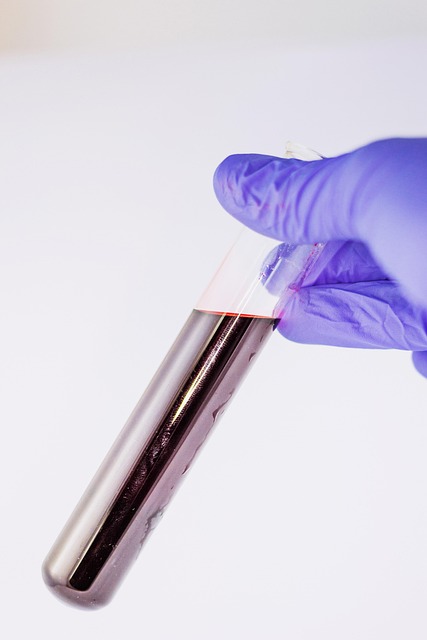Iron deficiency anemia, characterized by low red blood cell counts and impaired oxygen delivery, is commonly caused by dietary insufficiency or absorption issues, affecting pregnant women and individuals with medical conditions. Early symptoms like fatigue, dizziness, and pale skin are crucial for healthcare professionals in the UK to recognize, prompting recommendations for an Iron Blood Test. This simple test detects low hemoglobin levels, aiding in diagnosing ineffective iron absorption or storage and enabling timely treatment with dietary changes or supplements. Healthcare providers guide patients through the process and offer personalized management plans.
Discover how Iron deficiency anemia, a common yet often overlooked health issue, can be effectively detected through simple blood tests. This comprehensive guide explores the impact of iron deficiency anemia on your body and why early diagnosis is crucial. We delve into how specific blood tests identify the condition and provide insights into the process of an Iron Blood Test UK, including what to expect and the subsequent steps for managing this treatable disorder.
- Understanding Iron Deficiency Anemia and Its Impact
- How Blood Tests Help Detect Iron Deficiency Anemia
- Iron Blood Test UK: What to Expect and Next Steps
Understanding Iron Deficiency Anemia and Its Impact
Iron deficiency anemia is a common blood disorder where the body lacks enough healthy red blood cells, leading to poor oxygen delivery to tissues and organs. This condition often arises due to insufficient iron intake or impaired absorption, making it particularly prevalent in individuals with dietary restrictions, women during pregnancy, and those with certain medical conditions. Understanding the impact of this deficiency is crucial for prompt detection and management, especially when considering an Iron Blood Test UK.
The symptoms can range from mild fatigue and weakness to more severe issues such as shortness of breath, dizziness, pale skin, and headaches. If left untreated, it may cause long-term health complications, including cardiovascular problems and cognitive dysfunction. Identifying anemia early through blood tests is essential for healthcare professionals to prescribe appropriate treatment, ensuring improved quality of life for patients.
How Blood Tests Help Detect Iron Deficiency Anemia
Blood tests play a pivotal role in detecting iron deficiency anemia, providing essential insights into the health of your blood and its red blood cells. These tests are particularly crucial in identifying low levels of hemoglobin, a protein that carries oxygen within red blood cells. In the UK, healthcare professionals often recommend an iron blood test to diagnose this common form of anemia.
When you undergo an iron blood test, a sample of your blood is analyzed to measure the concentration of iron and evaluate its role in producing healthy red blood cells. If the result indicates low iron levels, it suggests that your body may not be absorbing or storing iron effectively, leading to symptoms like fatigue, weakness, and shortness of breath. This early detection through an iron blood test UK residents can access is vital, as prompt diagnosis allows for timely treatment to restore iron balance and alleviate anemia-related complications.
Iron Blood Test UK: What to Expect and Next Steps
An Iron Blood Test UK is a straightforward procedure that involves taking a small sample of your blood to measure iron levels. During this test, a healthcare professional will usually take a blood sample from your arm, similar to other routine tests. The sample is then analysed in a laboratory to determine the amount of iron present in your blood. This can be done through various methods, including serum ferritin testing, which measures the storage form of iron in your body.
If you are found to have low iron levels, indicating possible iron deficiency anemia, your doctor will discuss next steps with you. These may include dietary changes, such as increasing your intake of iron-rich foods or taking supplements. In some cases, further tests might be required to rule out other underlying causes. Your healthcare provider will guide you through the process, ensuring you understand your results and the best course of action for managing any anemia.
In conclusion, iron deficiency anaemia is a common yet serious condition that can be effectively managed through early detection. Blood tests play a pivotal role in diagnosing this condition, particularly the Iron Blood Test UK, offering crucial insights into an individual’s iron levels. Understanding the impact of iron deficiency and knowing the steps to take after an Iron Blood Test UK can lead to improved health outcomes and quality of life for those affected.
